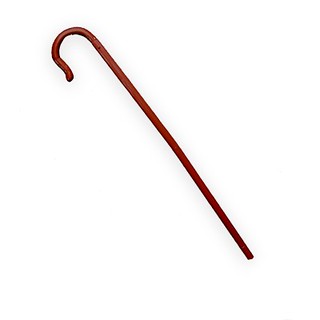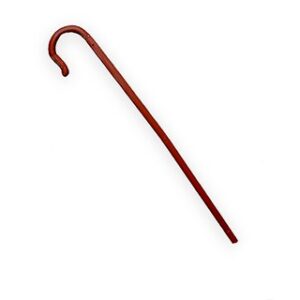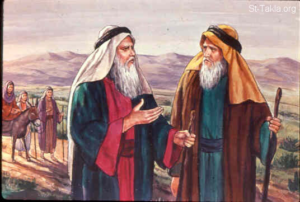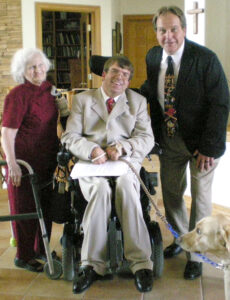
17 Jun My Observations of Exodus Four
I have been fascinated with the Exodus story for many years. There are so many details to this book that it’s hard to focus on all of them. For our purposes, however, we’ll focus on two story lines: Moses himself and the Exodus.
We are familiar with the story. The Hebrew children have been in Egypt for about 300 years when God remembers his covenant with Abraham. It’s time for God’s people to receive the land promised to them. But there’s a problem. The leader of Egypt, Pharaoh, has forgotten the story about Joseph and won’t let the Hebrews go.
Stop here for a minute. Years ago, someone asked me who my Pharaoh was. If I can see myself in the Exodus story, there must be a Pharaoh, right? There must be something in my life that keeps me from the Promise Land.
Does my Pharaoh come from within in the form of my physical disabilities and attitude? Do I let my disability control me? Or do my Pharaohs (notice the plural) come from outside forces? There have been people in my life who have said I couldn’t do something. Are those my Pharaohs? How about society in general?
To this day, I haven’t been able to come up with a satisfying answer. It’s probably a little of both, depending on the situation. I can certainly let my disability get the best of me and throw a one great pity party. (I don’t do that very often.) But society, its misconceptions, and its vision of the perfect life conciders disability I think that has been, and always will be, my biggest pharaoh.
Okay, let’s move on. Moses now comes onto the scene. God calls Moses to free his people, but not without a protest. That’s where we pick up the story.
You might call Exodus 4 my theme chapter. It drives my faith. Every time I read it, something new jumps out at me. The chapter can be divided into three parts:
- Verse 1-9
- Verse 10-17
- Verse18-31
Verse 1-9: In Exodus 3, God comes to Moses with a mission. Moses is to go back to Egypt and liberate God’s chosen people – the Israelites. Three times, Moses protests his call. Chapter 4 opens up with Moses’ third excuse.
Moses asks, “What if they do not believe me or listen to me and say, `The LORD did not appear to you’?” (v. 1) God responds by showing him that he has everything he needs. The staff that Moses used in his job. It’s much more than a Shepard’s tool. Although it was a part of his everyday attire, Moses over looked it as something that could be useful to God. Even though God used it in ways that is beyond our comprehension (this staff parted the Red Sea!), it’s still worth pointing out that God can use anything for his glory.
How easy can we overlook everyday things that God can use if we only let Him. To us, they are just man-made things (Moses staff was man-made) that help us in our daily life. To God, however, our stuff is just what he needs in order to use us.
To us, they are just man-made things (Moses staff was man-made) that help us in our daily life. To God, however, our stuff is just what he needs in order to use us.
The Lord can use anything from staffs, dogs, cars, TVs, computers, tablets—anything to accomplish His plan. He uses my wheelchair to help me get around, my ceiling lift to help me out of bed and onto the toilet and into the shower, and my iPad to interact with the world. Whether it’s the notepad to write or the Facebook app to stay connected to friends, the iPad helps me be a member of society.
In the next section we’ll see Moses use his lack of speech as an excuse of why God should not use him and look at how God brings along people to help us overcome our weaknesses. But in this section we saw how God uses our stuff to accomplish his plan.
Songwriter Ken Medema does a song about Moses and puts this scene to music. At the end of the song, Ken asks, “What do you have in your hands today? To what or to who are you bound? Are willing to give it to God right now? Give it up, let it go, throw it down.”
Bound is an interesting word, isn’t it? The dictionary on my computer defines it as, “stiff”, “stuck” or “unable to move freely.”
It’s a word I hear all the time. A common phase people use all the time is: “Tait is bound to a wheelchair.” No, I use a wheelchair; I’m not duct taped to it! Confined is another word people use. I’d only be confined if I didn’t have a chair; I’d be confined to a bed! But with a chair, I’m able to explore the world to my heart’s content.
Ken Medema looks at it a little different. He sees Moses as relying on his staff for more than balance and keeping snakes away. Moses actually uses his stick as something that keeps him from doing what he’s called to do. Because he has a stick, he cannot be used be God. But God turns the staff into a snake…something that Moses uses to keep snakes away.
The two definitions aren’t that much different. One is self-imposed; the other is imposed by society. But the outcome is the same. Either way, God message is the same: “What do you have in your hand? Throw it down. Let me use it.”
Verses 10-17
In verses 10-17, Moses goes personal and turns to communication. “’O Lord,’ he says, ‘I have never been eloquent, neither in the past nor since you have spoken to your servant. I am slow of speech and tongue.’” (4:10) You can almost hear Moses saying under his breathe, “That will shut him up. I’ll get out of this yet!”
But did it?
No. God responds in verses 11-12: “Who gave man his mouth? Who makes him deaf or mute? Who gives him sight or makes him blind? Is it not I, the LORD? Now go; I will help you speak and will teach you what to say.”
I’ll never forget the night when I first heard those words. I was in my early 20s and at a time in my life when I was questioning my life and future. I accepted my disability, sure, but I had to make sense of it. To move to the next stage of my life, I needed to understand the role my disability had in my life.
Exodus 4:11-12 answered my questions. God made me! He created my twisted body and ordained my unclear speech. And he was going to teach me what to say! How cool is that? Whether or not I needed to answer the “why am I disabled” question that night was not the point. I needed to know that God was real, that he cares for me.
And that was enough.
But God doesn’t stop there. He wants to use us to advance his kingdom.  Therefore, he gives us relationships to overcome our handicaps. For Moses, it was Aaron. For me, God sends help in many ways.
Therefore, he gives us relationships to overcome our handicaps. For Moses, it was Aaron. For me, God sends help in many ways.
I have mentioned technology and how it helps me communicate easier and faster. The mussels around my mouth and some other factors make talking difficult. Technology is helpful, but it doesn’t take the place of relationships. They are center in our lives, and the Bible hammers their importance through out its pages. The relationship we’re concern with here is, of course, Moses and Aaron.
The first time we read about Aaron is Exodus 4:14. God had enough of Moses’ excuses and questions and came to the final line: “What about your brother Aaron?”
What God is saying is, “you are not going to do this alone, Moses. I’m sending your brother to help you out.” Exodus 7:1 tells how this will work: “See, I have made you like God to Pharaoh, and your brother Aaron will be your prophet.” And so it was. Throughout the rest of the exodus saga and into the building of a nation, Moses and Aaron worked together as one.
In my own life, I couldn’t do half of the things I do without help from people. Some of these folks have been paid. Back in my school days, my “Aarons” were teacher’s aides who sat in classes and helped me with my homework. In recent years, certified nurses aides come to my house everyday and help me get up, shower, dressed and fix breakfast. They come back at night and help at bedtime. I couldn’t live independently without these people’s help.
It’s sometimes hard to recognize my aides as Aarons. After all, they get paid. When people get paid for a job, it becomes a different relationship. A boss-employee relationship is not a partnership. Moses and Aaron’s relationship was a partnership.
I love when a partnership forms in my life.
Partnerships are usually designed to fulfill a mission. Moses and Aaron’s mission lasted for forty years. That’s a long time! But here’s the thing about partnerships. Partnerships always form out of a need to get something done. It doesn’t matter whether that’s a day, a weekend or forty years.
When I had my midpoint review in college, this point came up. The Lord called me to ministry – everyone could see that – but how would I complete my calling? My advisor stressed the importance of me having an “Aaron” to help me in my ministry. This also came up in my exit interview as well.
As with Moses, God didn’t leave me hanging. A few years after graduation, I met my Aaron…my partner in life, Kelly. Kelly has helped me take a dream of ministering to people living with disabilities and makes it a reality. Because of her, it’s not just a dream but also my mission. That leads us to the last section of our story.
Verses 18-31
We could stop right here. Moses sees how the Lord can take a piece of wood and use it for his glory. We saw how the Lord doesn’t allow us to use our disabilities as excuses for not participating in his Kingdom. He gave us our speech. He surrounds us with people who assist us with the mission.
 But to stop here would miss the point. Why does God give us these things? Why would he spend the time to help Moses see that he is someone who can be used by God? Look at verse 18.
But to stop here would miss the point. Why does God give us these things? Why would he spend the time to help Moses see that he is someone who can be used by God? Look at verse 18.
”Then Moses went back to Jethro his father-in-law and said to him, “Let me return to my own people in Egypt to see if any of them are still alive.” Jethro said, “Go, and I wish you well.”
Go. The word is a verb and an action. Moses goes starts his mission. He meets Aaron in the desert and explains the mission. Wouldn’t it be interesting to eavesdrop on that conversation!
We must be ready and move when the Lord calls. We must realize that God never calls someone without preparing him or her for the mission, and God never prepares someone without a mission.
For Moses, it was leading God’s people out of Egypt. For me, it is disability ministry. And here’s the thing. God’s mission is to free people. That is a part of his job title. I don’t care if it’s a ministry to the homeless, prisoners, or to people living with disabilities. Name the ministry. I bet it involves freeing people in Christ.
We are all in one or two categories: 1) we are trapped in some kind of bondage, or 2) we have been trapped in bondage and are ready for a mission to set someone else free.
Which one describes you? Do you need to look at what is in your hand and loosen your grip so the Lord can use it? Or has the Lord freed you and it’s time for you to free someone else?


No Comments